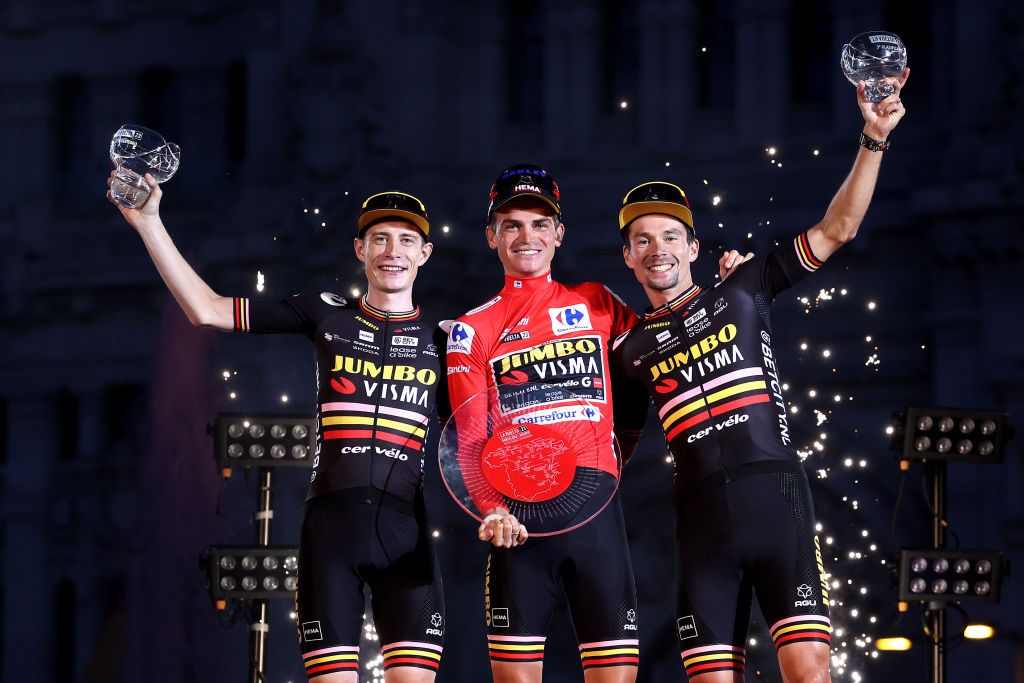Sepp Kuss’ fourteen days as leader of the Vuelta a España meant, among other things, fourteen post-stage press conferences. But whenever the American was asked how he felt about racing three Grand Tours in a single year, the his answer was almost invariably a simple one: “I recommend it.”
For Kuss personally, proof of the validity of his comment was visible in the colour of the jersey he was wearing. And, in the aftermath of Kuss’ Vuelta victory, one imagines many feasibility studies about riding all three Grand Tours must have been carried out among rival teams.
It’s partly because Kuss’ result was so remarkable. He was not just the first rider in 66 years to ride all three Grand Tours and win one of them; he also pivoted from being ‘just’ a very talented climber to becoming enough of an all-rounder to claim his first-ever Grand Tour.
It’s fair to wonder how Kuss would fared had Primoz Roglič and Jonas Vingegaard been on different teams at the Vuelta rather than part of his all-conquering Jumbo-Visma. There’s little doubt, however, that his physiological state was a very strong one in his third Grand Tour of the season.
For Ineos Grenadiers head coach Xabier Artetxe, Kuss’ own mental strength was at least as important as his physical potential in September. When it comes to doing three Grand Tours and winning one, good form is obviously key, but so too is having enough psychological resilience to handle so much racing.
“Doing the three Grand Tours at a high level is not new – my idol, Marino Lejaretta, did exactly that in the 1990s, and he was one of the pioneers of the modern age,” Artetxe tells Cyclingnews.
“It’s also true that you need a good plan and Sepp Kuss had only done two races before the Giro – UAE and the Volta a Catalunya, probably taking things quite calmly in both so he’d be in top form for the summer.
“But to me, the key factor is to be psychologically prepared for it and not everybody has the kind of mentality that a guy like Sepp Kuss clearly has.”
One vital element of that special kind of personality, Artetxe says, is “being the type of guy who isn’t bothered about focusing really hard for exceptionally long periods of time on being at altitude, about eating the right kind of food, about having the right kind of weight.”
“He’s maybe not the kind of guy who is a natural at leading a bike race, with all the being at the front of the bunch and all the stress management that implies,” he continues….
Click Here to Read the Full Original Article at CyclingNews RSS Feed…

